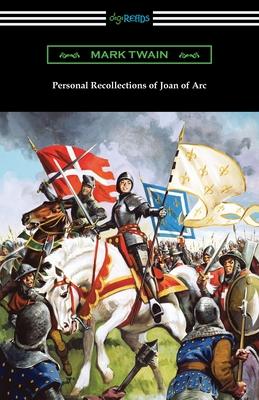First appearing as an anonymous serial in "Harper's Magazine" in 1895, "Personal Recollections of Joan of Arc" was Mark Twain's final novel and was published as a complete work under his name in 1896. The novel is a stark departure from Twain's usual comic and satirical writings, which is why Twain insisted it initially be published anonymously so that the public would take it seriously. The work is told from the perspective of a fictionalized version of Joan's page, Louis de Conte, and is divided into three parts based on Joan's life: her upbringing, her victorious time as a military commander, and her trial at Rouen. The novel is sympathetic to Joan and suggests that the English deliberately rigged the trial of Joan of Arc to convict her of witchcraft and heresy, a view that recent scholarship seems to support. Twain was deeply fascinated by Joan of Arc for much of his life. He considered "Personal Recollections of Joan of Arc" to be his best and most important work and spent nearly 15 years researching and working on the novel. The result is a work of sincere and engrossing historical fiction. This edition is printed on premium acid-free paper.

First appearing as an anonymous serial in "Harper's Magazine" in 1895, "Personal Recollections of Joan of Arc" was Mark Twain's final novel and was published as a complete work under his name in 1896. The novel is a stark departure from Twain's usual comic and satirical writings, which is why Twain insisted it initially be published anonymously so that the public would take it seriously. The work is told from the perspective of a fictionalized version of Joan's page, Louis de Conte, and is divided into three parts based on Joan's life: her upbringing, her victorious time as a military commander, and her trial at Rouen. The novel is sympathetic to Joan and suggests that the English deliberately rigged the trial of Joan of Arc to convict her of witchcraft and heresy, a view that recent scholarship seems to support. Twain was deeply fascinated by Joan of Arc for much of his life. He considered "Personal Recollections of Joan of Arc" to be his best and most important work and spent nearly 15 years researching and working on the novel. The result is a work of sincere and engrossing historical fiction. This edition is printed on premium acid-free paper.